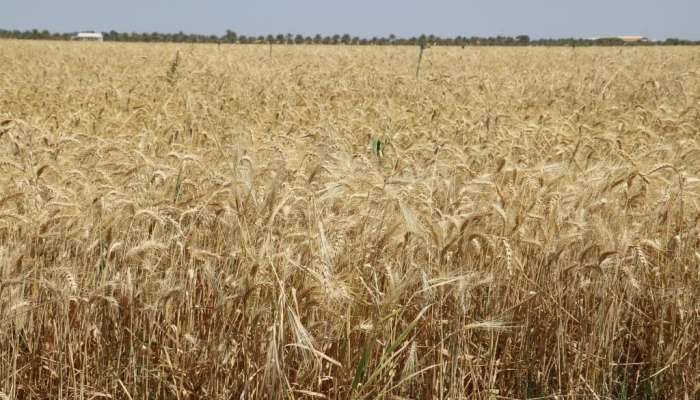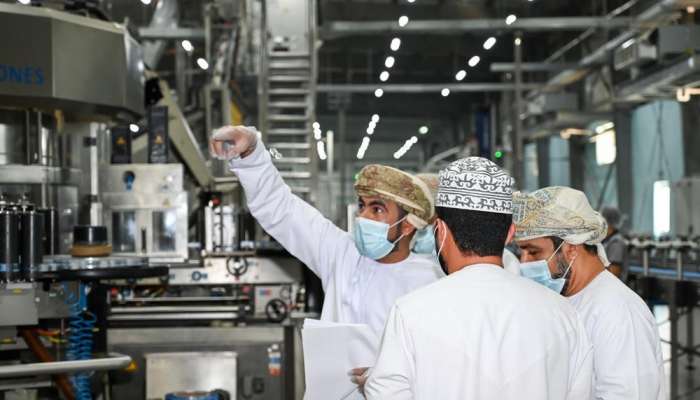

Muscat: There are 68 centres, quarries, and research-and-control laboratories to ensure food safety and quality in the Sultanate of Oman, Oman News Agency (ONA) said.
A statement issued by ONA said: “Dr. Hussein bin Sameh Al-Masrouri, Director General of the for Food Safety and Quality Centre (FSQC) said that there is an integrated, harmonious and effective system in various governorates of the Sultanate of Oman. The system includes 78 centres, quarries, research and control laboratories and outlets concerned with food that is consumed. These centres contribute to food security, the health and safety of citizens and residents, and economic and agricultural prosperity.”
In an interview with ONA, he confirmed that the centre with its five departments is the cornerstone of that system. In addition, there are 18 governmental water laboratories under the management of Namaa Company, 13 service laboratories for food distributed in the governorates, and 19 laboratories for the private sector in the field of food, water and plant health.
This is in addition to the safety and food quality departments in all governorates, and the quarantine and food safety departments that follow the Food Safety and Quality Centre in 15 sea, land and air outlets. The private one has obtained the international ISO 17025 certificate, and the other is in the process of obtaining that certificate.
Dr. Hussein Al-Masrouri added, "The departments affiliated with the centre are concerned with the food safety system and have multiple specialties, and work in an integrated manner with each other. The central laboratory for food safety is the main and most important department. It is concerned with laboratory tests and analyses and provides various data and results. The second department is concerned with developing food safety systems and rehabilitating the main productive food facilities, such as farms, as well as animal, agricultural and food factories”.
There is also a Department of Risk Assessment and Food Crisis Management. This is a strategic department that provides an early warning system for potential risks in the food sector. The Department of Food Standards and Conformity works to develop, prepare and adopt specifications, and match the results of laboratory analyses with the relevant standard. The last department is the Fish Quality Control Centre.
The Sultanate of Oman will participate in the celebration of World Food Safety Day on June 7. The Food and Agriculture Organisation of the United Nations and the World Health Organisation (WHO) decided to celebrate it this year under the slogan "Food Standards Save Lives".
It emphasised that food safety is not only a critical component of food security, but also plays a vital role in reducing foodborne diseases. Every year, 600 million people are exposed to diseases as a result. There are about 200 different types of these diseases, and they are responsible for 420,000 cases as well as preventable deaths every year.
The Ministry of Agriculture, Fisheries & Water Resources seeks to unify the efforts made by the Food Safety and Quality Centre, food safety and quality departments, land, sea and air outlets, and government and private laboratories under an integrated umbrella to ensure food safety and quality in the Sultanate of Oman, and to secure necessary preventions, prevent potential risks and enhance the elements of the welfare of society. It seeks cooperation with various government agencies and the private sector to achieve this priority.
A mechanism is followed to maintain the safety and quality of the stock of main commodities by examining imported commodities twice, once before importing them from the country of origin, and again after their arrival in the Sultanate of Oman. The stock is secured from damage, fire, etc., and the warehouses are technically equipped to maintain the quality of goods that the Ministry deals with according to the physical characteristics of each commodity. Periodic maintenance is arranged for the warehouses, as well as an insect control system to maintain the integrity of the stock through special materials for fumigation, disinfection and cleaning according to a specific schedule.
Dr. Hussein Al-Masrouri said: "There are joint visits with the authorities concerned with food safety, and they are strategic partners of the centre, such as the municipal sector concerned with food control in each governorate. There is regulation and supervision from the Food Safety and Quality Centre with regard to risks. The Consumer Protection Authority plays a role in protection from Commercial fraud, whether in food or other areas, as well as the role of Madayn in the industrial sector”.
He pointed out: " The Department of Risk Assessment and Food Crisis Management at the Food Safety and Quality Centre operates with an external and internal system. It follows and monitors the global market. It also organises internal work with the sectors of municipalities, cities and the Consumer Protection Authority, and it adopts a specific system to follow up on products inside the markets."
Dr. Hussein Al-Masrouri said "The centre is working to strengthen food control systems to protect the health of consumers and ensure their safety, based on the initiative of the Food Tracking and Management Program. This is an initiative in the electronic design phase and will be launched soon. Therefore, knowledge of spoiled food or food safety is the responsibility of everyone, be it the centre or government agencies or the consumer himself”.
The statistics of the Food Quality and Safety Centre indicate that during the year 2022, the centre released 35,334 incoming consignments, issued 4,648 health certificates, 29,787 validity certificates, 490 export certificates, 792 conformity certificates, and 2,966 certificates of conformity with test reports.
According to the statistics, the total food shipments received through land and air ports amounted to 35,334 shipments. The shipments were examined by the centre, and included 7,726 shipments through the Hatta Al Wajajah port, 6,817 shipments through Al Buraimi port, and 5,897 shipments through the Sohar port.
The total number of food samples withdrawn for laboratory examination during the past year was 1925 samples, of which 434 samples were examined in the Food Safety and Quality Centre, 1386 samples in private laboratories, and 105 samples in municipal laboratories. Out of the total number of those samples, 1865 samples conformed to health specifications and requirements, and 60 samples did not.
With regard to analyses of food and water samples, their total number reached 27,535 analyses from 4,992 samples. Of these, 4,327 were conformed to requirements, and constituted 87% of the total number of samples. The number of non-conforming samples reached 665 samples. Necessary measures were taken towards them.